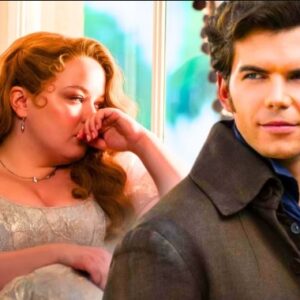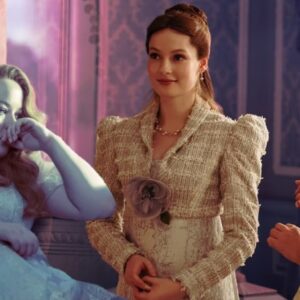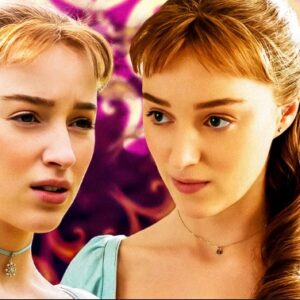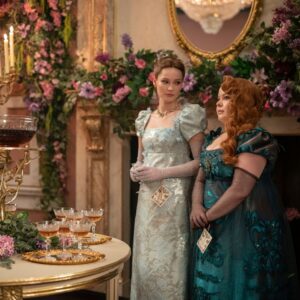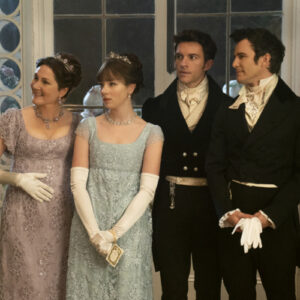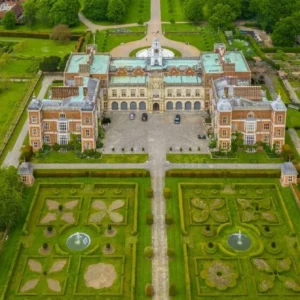Glaswegian actor Tony Curran stars alongside Julianne Moore in new hit drama Mary & George
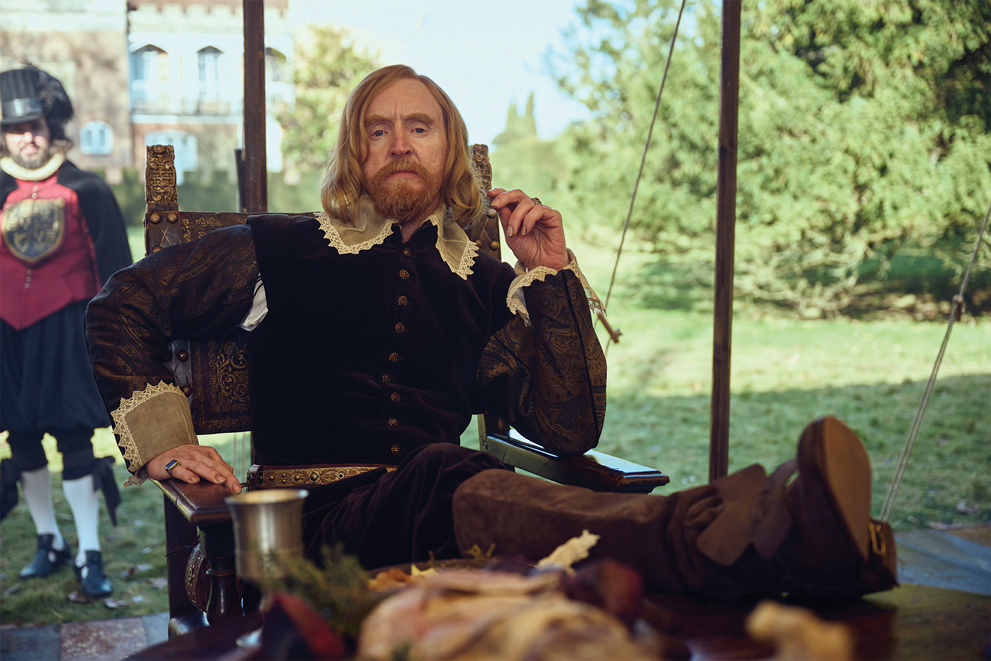
Tony Curran is quite the veteran screen actor these days. The 54-year-old from Glasgow has played a great many characters over the years. From his stint on This Life in the ’90s and a major role in Andrea Arnold’s Red Road in 2006, to his beautiful guest role as Vincent Van Gogh in Doctor Who and a stunning, heartbreaking performance in recent BBC drama Mayflies. Then the roles in huge US productions from Ray Donovan and 24 to Elementary and The Flash. But this one has some especially lurid descriptions thrown his way.
King James VI of Scotland and I of England, as well as being the man who first combined the thrones of England and Scotland, was apparently also “so cockstruck it’s like a curse”. Crivvens. That’s no way to talk about the monarch, is it?
Get the latest news and insight into how the Big Issue magazine is made by signing up for the Inside Big Issue newsletter
For his role in new Sky drama Mary & George, Curran plays the king with real verve. It’s a racy, rollicking ride through history, focusing on the power struggles behind the throne as Mary Villiers (played with relish by Julianne Moore) engineers her son George’s elevation to the supremely powerful position as the king’s most favoured lover.
“When I first met Julianne Moore, she asked where I was from. When I said Glasgow, she said, ’That’s really interesting – my mother’s from Greenock!’” he recalls. “She’s such an incredible actress and was great fun. She has Celtic roots like King James, she’s a fellow redhead, a fellow Sagittarian – so we had a lot of fun and a lot of fire on that set.”
We might not see Curran doing much king-ing or politicking in the early episodes. But there’s a whole lot of fucking going on in Mary & George…
“That’s why I got the role. Because there’s great similarities between me and James the horny goatfucker,” grins Curran, when he calls the Big Issue from his home in Los Angeles. “Being in Scotland as a young boy, it was very cold… No, but there are some great turns of phrase in this.”
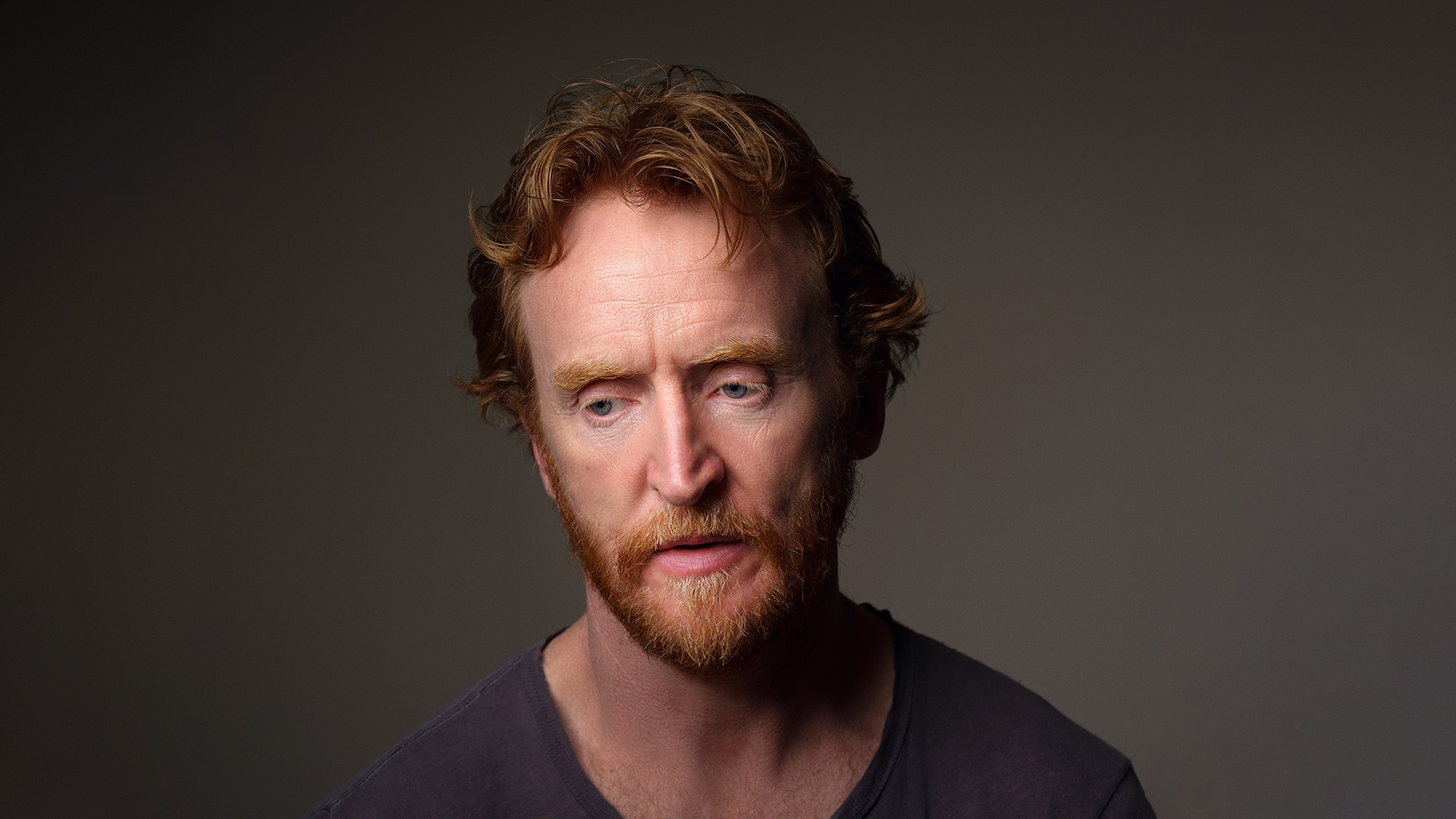
So what was behind King James’s quest for pleasure?
“I don’t think he’s the only human being to want to forget who they are or their traumas and responsibilities by diving into sensual pleasures,” Curran says. “Everybody has an escapism, you know? I like to go skiing. Everybody needs a distraction from the spiders in their head.”
And King James, son of Mary Queen of Scots, had a lot to escape from.
“James’s father was assassinated, his mother was taken from Scotland and beheaded by Queen Elizabeth. That would really shape a young person,” says Curran, who devoured the history books in preparation for the role. “When he was 13, he was kidnapped for a year. So many people wanted to kill him. His kingdom was precarious.
“They say paranoia will destroy you, but he had every right to be paranoid and careful. He was nourished in fear, King James. So he was very wary of people. And when he found individuals that he trusted, cared about or loved, he found solace in these relationships. It was like that with Lord Lennox and the Earl of Somerset, and then George Villiers, as we see in this series. He just wanted to disappear into them.”
James, famously, was of a more artistic bent. “There’s that phrase, isn’t there? If you can’t find meaning you’ll find distraction,” says Curran.
“James loved to hunt, he loved to go to the theatre. He wrote a lot as well. A lot of people think Queen Elizabeth inspired Shakespeare, but there were more plays written under James’s rule. He also wrote ‘smoking is hateful to the nose, harmful to the brain and dangerous to the lungs’. So he was way ahead of his time – kicking off the first anti-smoking campaign in 1605!”
James was a pacifist compared to most monarchs of the era. Is that why we know less about him than his predecessors Henry VIII and Elizabeth I?
“I think James is one of the under-appreciated monarchs in British history because they thought he was weak,” says Curran. “I don’t know if we also don’t hear about him because of his sexuality and because he had relationships with men. But he definitely had a passive approach to warmongering. Under the reign of Elizabeth I, all there was, was war. Under James there was peace for 20 years because he saw the futility of it and how it had affected his life. It destroyed his mother, his father, his family.
